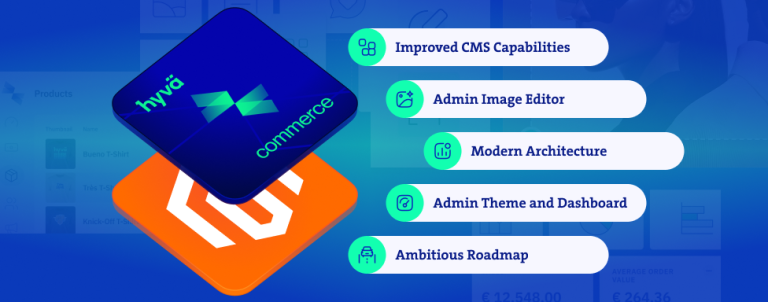The benefits of ERP (Enterprise Resource Planning) and eCommerce integration are immense when the process is done the right way. ERP presents the “backbone” of your business and a powerful software system designed to integrate and unify the main functional areas of your organization. What should companies keep in mind when planning the integration of two key systems in their business operations – ERP and eCommerce platform?
Although ERP implementation inevitably brings high upfront costs, the standardization of business processes, improvement of the supply chain management, and automation of data collection will definitely bring more advantages to your business operations. Having all of this data unified, visible, and easily accessible means that not only you will be able to get the job done more efficiently, but it will also make you align your offline and online processes.
Many eCommerce organizations use some kind of ERP system to support their business needs better. By choosing to integrate your ERP system into your eCommerce platform, you enable bidirectional flow of information between two systems allowing the systems to interact with each other with minimal human input.
What are the key benefits of ERP and eCommerce integration?
1. Data entry and management
ERP data are available in real-time and must be only entered once. This means that you do not have to take any special care of stock availability or even order statuses. ERP system covers that for you and shares all the necessary information with your customers – leading to higher overall customer satisfaction.
2. Catalog management
ERP can contain a lot (and I mean A LOT) of information about the products. Some of them are basic, such as name, SKU, description, price, dimensions, quantity, etc. But some of them are really relieving your work on your eCommerce store. If you decide to synchronize products, you can actually have attribute sets, product availability (with information about when will the product exactly be available), category information, related products, and substitutes defined in ERP and shown on your product page. Products should be created in the ERP and fine-tuned within your eCommerce platform.
3. Complex pricing models
Price is defined in ERP, and that includes all the different rebates and discounts for special customer groups. ERP will even allow you to create special prices for a limited time, which will also be shown on your eCommerce site. For you, this means less time spent thinking about different special prices and only worrying if everything is correctly set up from your ERP side.
4. Invoicing and financial reporting
Since your ERP should present the most important organizational financial database, if your eCommerce business is integrated with the ERP itself, it would be much easier to follow your online numbers and match them with the offline segments of your business. Not only that, but automation of invoicing process will definitely help in reducing the possibility of human error.
Tips for decision-makers
Magento itself shared some useful advice when it comes to choosing the right ERP package that will suit your business needs.
From my point of view, when it comes to ERP & eCommerce integration, two things are crucial:
1. Once you decide on ERP, find a highly skilled company that will implement and adapt the ERP solution for your business needs. Ensure that they are official partners and that they have at least several similar projects behind them. How you choose an integrator is just as important as your choice of the ERP system because this is where many implementations fail. So choose wisely.
2. Make sure that your ERP implementation company and your eCommerce development agency can (and will) work together simultaneously on this integration. There is a 99% chance that one of these sides will have to make at least small customization to make everything work perfectly. The symbiosis of these 2 partners of yours will make a huge difference in the final result.
Integration process – a team effort
For one of our existing clients, we worked really closely with the leading regional Microsoft Dynamics AX and NAV partner – Adacta. They described our collaboration like this: “Two teams, two companies, two locations, and one aim – to deliver an excellent and integrated solution for the customer. “
The main project goal was to implement and synchronize both solutions – ERP (MS Dynamics NAV) and eCommerce system (Magento 2) to achieve the automation of all business functions throughout the entire user journey from initial customer order to final delivery.
The solution we implemented together led to a significantly better performance in the first 6 months with reductions in costs and errors, better user experience and, ultimately, daily order rate increase by 35% for our client.
Are you still not sure if you need an ERP in order to run your eCommerce business more successfully or are you looking for an eCommerce agency to help you integrate your Magento store with an ERP system? Feel free to reach out and let us help you improve your business processes!



